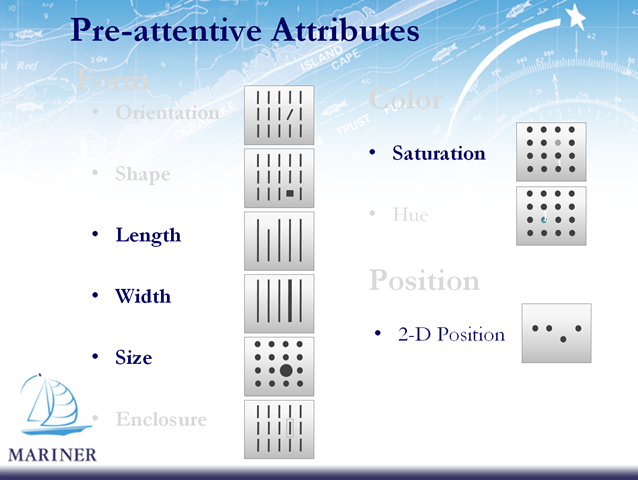Linkblog, The Sequel
Hello! I'm Peter and I'm here to present another sweet, sweet linkblog post. In my first link-heavy post, I pulled any links I could remember, from the previous week, year, or decade, a 'best of' of sorts. So don't expect great things from this sophomore effort.
To give the standard introduction: I've pulled anything tangentially related to software development in the .NET space into this linkpost, salted each link with commentary, and grouped into sections. I'm not an authority on most of the articles I link to, so when commenting on them will try to restrain myself.
Random topics
- Reminder: Virtual ALT.NET livemeetings - it's as easy as 1) typing snipr.com/virtualaltnet into your browser, and 2) entering the LiveMeeting. If you want to participate (encouraged), get a cheap mic/headset of some kind. There are three weekly meetings: Australian Monday night, Wednesday night US, and the Central-time Brown Bag meeting on Thursday. I'm definitely a fan. Also, don't forget: VAN records their sessions. Between this, NDC, and the various Ruby conference videos I've found, I'm never looking for something to watch.
- Designing Effective Dashboards [PPTX] - while I hate buzzwords as much as the next guy, and for that matter, while I hate browsing PowerPoint presentations, this has managed to overcome both its enterprisey roots and its PPTX medium! It's a PowerPoint presentation about Business Intelligence, which means I should be falling asleep just writing about it, and yet, here I am! Trust me, it's worth browsing. For a teaser, here's a self-explanatory slide:

Business Intelligence is neat-o! Wait, did I say that?
- The circle of no life:

Every now and again I need reminding.
- The Bipolar Lisp Programmer - this is partially about Lisp programmers, but also partially about programmer attitudes and, lacking a better word, 'psychology.' I don't like that word. Anyway, the article isn't necessarily based in hard science, but hey, it's a fun read, and you may just recognize something of yourself in it.
- Optimism - the three axes of optimism (or pessimism, if you're one of those people)--interesting because it provides an algorithm to make you more optimistic. Which is a good thing. And yes I said algorithm, which is why I'm linking to it.
Software engineering topics
- (Updated Classic Mistakes List) Coding Horror: Escaping From Gilligan's Island - Classic software development mistakes. You'll recognize a few (or several) from your last project.
- Classic Mistakes Enumerated - and for more detailed descriptions of the original classic mistakes, here's the original list of 36 classic software development mistakes, copyright 1996.
- AR⊗TA - Artisinal Retro-Futurism crossed with Team-Scale Anarcho-Syndicalism - and no, this isn't a joke. This is a type of "post-Agile" thing as it tries to address the reality of failed Agile projects.
My ongoing obsession with learning, which is arguably the skill software developers need most
- Making TDD Stick: Problems and Solutions for Adopters - for those of you trying to teach others TDD, read this article for sage advice. For those of you new to TDD and frustrated by how weird and difficult TDD is, read this quote:
Test Driven Development can be very hard to learn. The learning phase (the time during which it becomes a deeply ingrained habit) typically lasts from two to four months, during which productivity is reduced [2]. Eventually the benefits will be obvious and the technique is usually self-sustaining, but the question is: how to get there? Many developers give up after only a few days.
...then go check out the article to see what tips they have for making learning easier. - The 7 Phases of Unit Testing - step 1 is "Refuse to unit test because "you don't have enough time."
- We have no class (a personal journey of not learning OO) - here's some honesty about how learning object-oriented programming is a large undertaking. I'm there with you man, I'm there. I'll say that though I "get" the SOLID principles, that building systems of lots of interacting objects is messy. Procedural-based refactorings (e.g. splitting a huge method into smaller methods) are almost always straightforward and can even be measured (see cyclomatic complexity), so you know when you're on the right trail. On the other hand, when you split responsibilities into multiple classes, you get into the world of, yes, I'm going to use the word, brace yourself, here it comes: hermeneutics. Using words I understand: it means that object-oriented design is messy and mushy and it's difficult to say objectively whether a design is better or worse than competing designs. And no, I'm not going to acknowledge the pun, if you noticed, well that's your problem.
- Under Your Fingers [5 min of QuickTime video] - here Corey Haines exhorts us to engage in deliberate practice. Deliberate practice. It's an important concept, and it's something every programmer seems to be lacking. Wax on, wax off.
- The difference between derivation and innovation - Oren gives a rule which explains why so much of the new hotness in .NET is uninteresting to me. Azure, for example, is the same thing you're already doing, but in the cloud...a derivation. See, that sounds better than "it's boring" or "I hate it," right?
My ongoing obsession with TDD, unit testing, and/or producing quality software in general
- Classifying tests - good article that disambiguates unit, integration, and functional tests. Most of you reading this have an incorrect understanding of what a unit test is, and yes I'm talking to you. I'm not going to write your name here in the post, because that would just embarrass you, but trust me, it's you. So read the article :)
- A testing survey on a large project - the title isn't flashy linkbait like "40 Reasons I Can Make You Click This Link," but bear with me--this is one of the few places I've seen unit testing, integration testing, and acceptance/functional/UI testing put into a kind of cohesive whole. Being still in the stage where I'm forming a usual style, this type of post is great to gain a sense of perspective.
- Test Review Guidelines - Art Of Unit Testing - Roy Osherove has posted the test review guidelines from his book on this page. Most of the guidelines are unsurprising, excepting the one interesting point he makes about overspecifying tests. These are subtle points and as I struggle with this issue, it's good to read his concrete rules on avoiding overspecification.
- Unit Testing with functions that return random results [Stack Overflow] - This issue has ruined (sorry, produced valuable learning experiences during) no less than two full coding dojos, and has almost derailed a third. Now, every time we even catch a whiff of randomization, it's "uh-oh, let's break all the dojo rules and just work past the issue." So I find it satisfying to see that it's not just us.
- Evolutionary architecture and emergent design: Test-driven design, Part 2 - I'm only interested in the claim in the first section under "moist tests" that "DRY doesn't apply to unit tests." I'm suspicious that those following the "moist test" philosophy are classical TDDers and those who disagree are mockists. Yeah, I didn't make those terms up, see this Martin Fowler article. In fact:
- Mocks aren't stubs - from Martin Fowler. I found this looking for the difference between mocks and stubs, and ended up with an excellent bit of perspective: TDD advice from classical TDDers and TDD advice from mockist TDDers won't always agree, especially in the teensy details like "moist tests" above. Also, coding dojos.
Counter-counter culture (wherein we get to 'why' answers)
- The usual result of Poor Man’s Dependency Injection - Chad explains why in his experience using Poor Man's Dependency Injection (look it up if you're interested) always ends in tears. Up to reading this post, I assumed that allegiance to IoC tools was one of those irrational tribal values, but now (after reading the post) I understand.
- Why unit testing is a waste of time - the "waste of time" title is more inflammatory than the post, but the core point is that unit testing is part of a balanced diet. Part.
Also, to be clear: unit testing is not a waste of time.
Architectures
- The Tale of the Lazy Architect - Oren describes a composable system. This sounds sweet.
- Submit this Form InfoPath - FAQs - and here is something of the opposite. This FAQ exemplifies why I don't want to ever do anything complex with InfoPath. Not to pick on Kathy the author, that isn't the point--the point is to show what kinds of awful workarounds and hacks you have to do just to make a field read-only, or to pull in a user's email address. For fairness, I should point out that this FAQ is for InfoPath 2007.
Business/organizational development/management/CEO stuff
- Culture [flash rendering of PPT presentation] - the presentation isn't very fancy but the content is dynamite. Here's an analysis of the concepts presented. I particularly like where they discuss corporate values and how the values are often meaningless ("Enron had a nice-sounding value statement"). They've got crazier (crazy in a good way) stuff in there, including a discussion of how they fire average performers. It's almost utopian-sounding.
 Peter Seale's weblog
Peter Seale's weblog